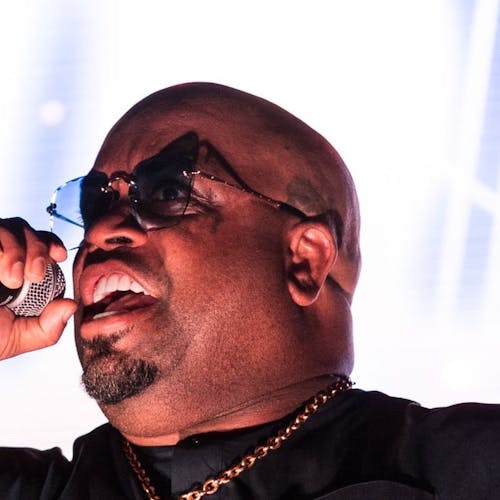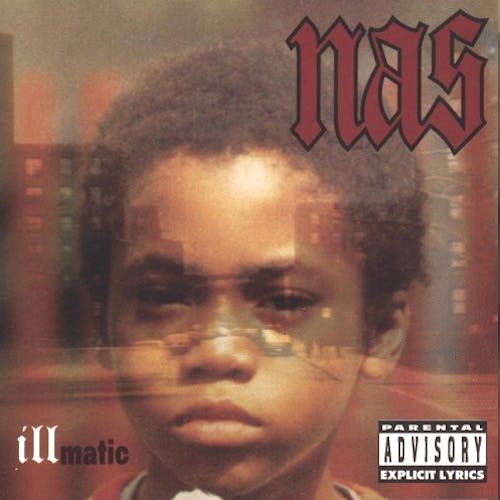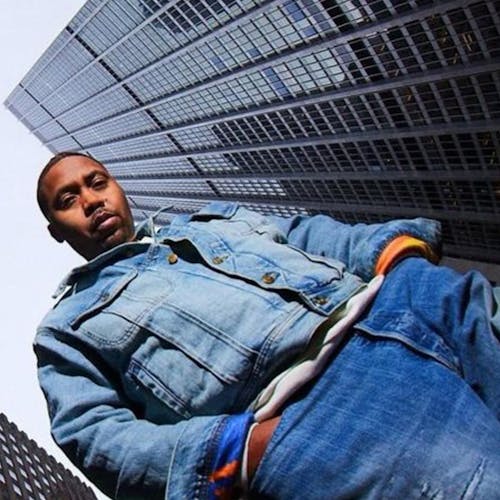
In 1989, Ice-T appeared as a guest on the London-based DJ Tim Westwood’s influential Hip-Hop radio show. Westwood asked the Los Angeles gangsta rap pioneer if he could play him a track by Hijack, an ultra-hardcore self-styled “terrorist group” from Brixton in South London. The song Westwood played, “Hold No Hostage,” boomed out like a hyper-aggressive slab of ruckus-inciting rap. “I’m like, ‘What the fuck was that?’” recalls Ice-T, before remembering quickly visualizing the paramilitary-outfitted crew as “like a British Public Enemy.”
The next day, Ice-T called up Hijack’s founding member, DJ Supreme, and invited him to a meeting at London’s infamous Wag Club, along with the group’s lead MC, the commandingly-voiced Kamanchi Sly. Ice-T offered to sign Hijack to his Rhyme Syndicate record label; the imprint also housed Donald D, Divine Styler and Everlast (who’d go on to form House of Pain). As Hijack subsequently prepared the release of their feverishly-anticipated debut album, titled The Horns Of Jericho, they vowed in rhyme to “reign supreme as the British nightmare to America’s dream.” Unfortunately, a combination of “Cop Killer”-era politics and major record label machinations reversed the sentiment, leaving Hijack’s opus repeatedly delayed before it seeped out a couple of years later as a European-only release. The chain of events has cast The Horns Of Jericho as both a quasi-lost classic and a revered ahead-of-its time British Hip-Hop document.
The roots of Hijack date to London's early-'80s Hip-Hop soundsystem circuit. Founding member DJ Supreme says he started honing his skills as a bedroom DJ after being encouraged by Cosmic Jam, a DJ who made a name for himself on the city's formative Covent Garden scene. Around 1986, Supreme decided to form his own DJ crew. He wound up battling DJ Undercover, another upcoming DJ, in his bedroom. Spinning staple breaks including "Black Grass," "Funky Drummer" and "I Can't Stop," Supreme remembers a furious back and forth where the DJs "came to a mutual agreement that we both won."
DJ Undercover became a member of Supreme’s DJ group, which was originally conceived to be a trio of turntablists. "But Undercover said to bring in his friend Kamanchi Sly as he was a bit of an MC and could say what the DJs were doing, like a mic man," explains Supreme. (At the time, Kamanchi Sly was known as MC Ron.) "But I never looked for another DJ and Hijack ended up as a three man crew.” The group name Hijack was suggested by an acquaintance who likened the way Supreme wanted to take over the local scene to "kinda like hijacking the place,” recalls the DJ. (At full force, the expanded version of Hijack would also include the gargantuan presence of Ulysses (dubbed the “warrior of peace”), plus Agents Fritz and Clueso, with the latter duo taking on a stage role similar to Public Enemy's S1Ws.)
Hijack's graduation from bedroom battles to releasing records was quick. After playing a Tim Westwood party in a park, the group were signed to Music Of Life, a key UK dance label that also employed the rapper Derek B in an A&R role. As Supreme set about figuring out how to channel live performances into studio records, he studied beats by American producers Paul C and Marley Marl, before embracing his own upbringing. “I grew up in a Jamaican household with reggae, pop, soul, punk, new romance music, David Bowie, Kate Bush, I had all those influences," he says. "Hijack was my reinterpretation of Hip-Hop."
Released on Music Of Life in 1988, the group’s debut song, "Style Wars,” resonated like a UK take on Public Enemy's "Public Enemy No. 1," all thudding kick drums and a sinewy squelching anti-melody. "That was kinda a lazy record, like let's use this break and it was a quick record," admits Supreme. "But it didn't matter to me because the MC could rap his arse off and the DJs were super solid." Supreme adds that when the time came to cut Hijack's next record, "Hold No Hostage," he was already "trying to do something different that would basically tear the arsehole out of hip-hop." Dropping the following year, Supreme describes the brutal "Hold No Hostage" as being "a whole new sound everyone [in the group] got behind; 120 beats per minute, the breaks were super fast, the rapping was super fast, but we had clarity and vision and copious amounts of energy."
DJ Undercover had previously recorded pirate radio tapes for Tim Westwood — a connection that allowed Hijack to get "Hold No Hostage" played on the radio. DJ Supreme recalls hearing Ice-T's impressed reaction to the song after Westwood spun it for him. The next day, Supreme received a call to meet up with Ice-T at London's Wag Club. "Ice had the rock chain with the pistol on the end of it, the Kangol, looking very confident and he was basically selling us America," remembers Supreme. "He was like, "Yo, you guys are going to take over the world." He saw us as the UK equivalent of Public Enemy. He saw straight away that this could go outside the UK and be bigger and broader."
Freshly signed to Ice-T's Rhyme Syndicate record label, Hijack began recording their debut album, The Horns Of Jericho. DJ Supreme remembers purchasing "a Yamaha toy sampler, like one a five-year-old kid would get for Christmas," and maximizing the equipment to invent Hijack's energetic sound. (An Atari computer and the Cubase software were added later.) Explaining Hijack's reliance on high impact breakbeats, Supreme says he "basically stumbled across this fast breakbeat concept and every drum loop and sound I was like speed it up and do it 100 miles per hour and play around with it in the sampler.”
Adding to the album’s frantic and intense sonic backdrop — which at times brought to mind the Bomb Squad filtered through UK soundsystem culture — Hijack’s debut album relayed commentary on child abuse (“Don’t Go With Strangers”), prompted calls for unity (“Bother Versus Brother”), and imagined the Rhyme Syndicate on the run from the authorities (“The Syndicate Outta Jail”). DJ Supreme says he took a lead prompting the concepts to rap about and directing ideas about how the verses should flow: On "Don't Go With Strangers,” he wanted to conjure a brassy James Bond movie scene atmosphere to accompany cautionary lyrical tales about predatory "perverts and pedophiles." Adding a further layer to the heady Hijack blend, DJ Supreme and DJ Undercover blessed tracks with extended sections of breakneck cuts and scratches, which the former characterizes as “we were basically battling each other on record."
Hijack's blitzkrieg sonics on The Horns Of Jericho were amplified by a forceful cover image, taken by Glen E Friedman, a photographer who made a name documenting the Los Angeles skate scene before adding punk and Hip-Hop images to his portfolio. "I was working for Ice-T at the time and flew over to London for the Hijack photos," says Friedman. The concept for the cover involved the group menacing at the camera while packing swords and knives and wearing gas masks in a paramilitary fashion. "They brought their own weapons along," recalls Friedman. "I loved the composition and color of the image." (Supreme reveals they used the Oval underground train station as the location.)
Anticipation for The Horns Of Jericho was high — but what followed was an extended period of radio silence. DJ Supreme remembers the "Cop Killer" controversy halting Hijack's rise, referring to the anti-police brutality song Ice-T wrote for his heavy metal band Body Count. "Ice was getting really pressured by the government in the United States and the President [George W Bush] got involved," he says of the backlash to the track. "So basically he had to leave his label, close Rhyme Syndicate records, and that's where we got caught up." He adds that Ice-T took steps to ensure the Rhyme Syndicate roster secured record deals elsewhere: "Ice basically provided a safety net while he was going through his stuff with the government. That's what delayed us.” Hijack ended up on Warner Bros. "They didn't know what to do with us," says DJ Supreme. "They listened to the album like, ‘What the hell is this? Is it even Hip-Hop?’"
The Horns Of Jericho was granted a release in 1991 in Europe — but not in the United States. The decision destroyed Hijack's ambitions of becoming recognized as UK hip-hop trailblazers in the culture’s motherland.
Looking back on the situation, Ice-T recalls Hijack being signed by the executive Benny Medina at Warner Bros: "What they did was they released the Hijack album in Britain and apparently didn't feel the record sold enough there to merit it being sold in the United States. Now, what number they needed, I was unaware of — I never knew and that conversation never came up to me until later. So it was a very disappointing moment to drop the Hijack album, do the videos, put 'em out, release it in the UK, and then have Warners decide they didn't want it release it in the United States. That was it."
Ultimately, Ice-T says, "Hijack got caught up in record label politics numbers. That's the answer."
During the period when Hijack were in record release limbo, the group understandably began to fray over creative differences. DJ Supreme remembers trying to remix and revamp some of the album tracks to keep them sounding fresh while the album was held back. He says he always had total faith in Hijack's hardcore manifesto, even though by 1991 Hp-Hop’s sound and image was starting to change. Internal discussions took place about whether Hijack should be moving in a less intense direction — "We should be making records like Naughty by Nature, that's the discussion going on," Supreme recalls — and in the end the group reached a "fracture point.” (Later on, in 2001, Kamanchi Sly would dub himself the Unknown MC and score a number one UK pop hit appearing on DJ Pied Piper’s garage song “Do You Really Like It?”)
Just shy of thirty years from the eventual release of The Horns Of Jericho, the album holds a place as part of Hip-Hop folklore. In the United Kingdom, a wave of energized and uncompromising groups emerged from out of Hijack’s shadow, with the music of acts headed up by Gunshot and Hardnoise often being tagged as the Britcore sub-genre. The London-based rapper Silver Bullet scored a chart hit at the end of 1989 with the furious “20 Seconds To Comply,” a song which sampled from the Robocop movie; such was the resemblance to Hijack’s full-throttled sound, DJ Supreme remembers people calling him up when they’d hear the song on the radio to “congratulate us on a top ten hit.” He adds, “Hijack’s sound was definitely being accepted by the UK and definitely penetrating Europe.”
Over in the United States, the intricate and livewire scratching techniques of DJ Supreme and DJ Undercover would have an influence on the turntablist moment spearheaded by DJ QBert and the Invisibl Skratch Piklz in the ‘90s. Supreme recalls QBert calling him up to tell him how ahead of their time his scratch patterns were; Supreme would later be invited to speak at the Scratchcon 2000 seminar in San Francisco.
Despite a narrative that Hijack were robbed of their moment in the worldwide spotlight in 1989, DJ Supreme reflects that he “looks back on Hijack in a positive way” and is proud of the group’s legacy. “To be talking about what we did 30 years since it was done, it's mission accomplished,” he says. “I wanted my name next to Ice-T, next to Marley Marl, I wanted to be mentioned in the books. To have QBert and the Beat Junkies saying you were influential on the west coast DJ scene, to have Public Enemy know who you are and rap over your beats on tour, that’s it. The album came out with a lackluster release, only in Europe, and Americans didn't know us but they were listening to us on tapes. Qbert tells me they could only get the album on tape or bootlegs — so somehow the sound could not be suppressed."



